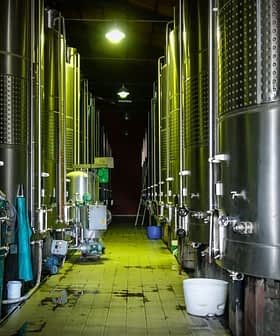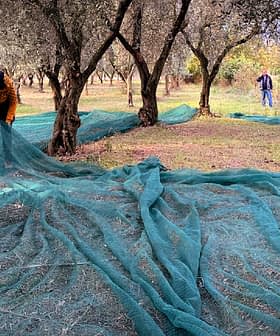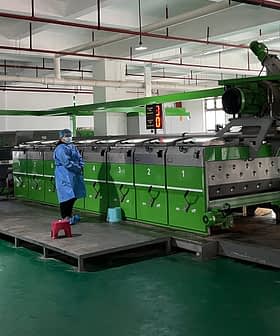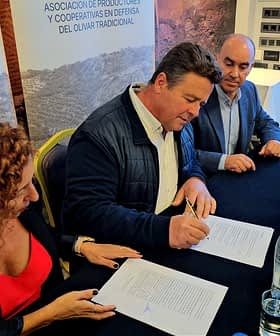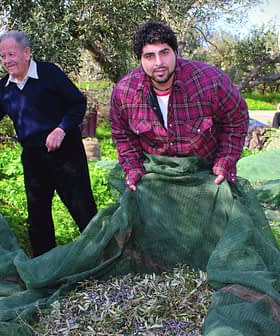 9.5K reads
9.5K readsNews Briefs
Students in Rome Design Drone for Harvesting Olives
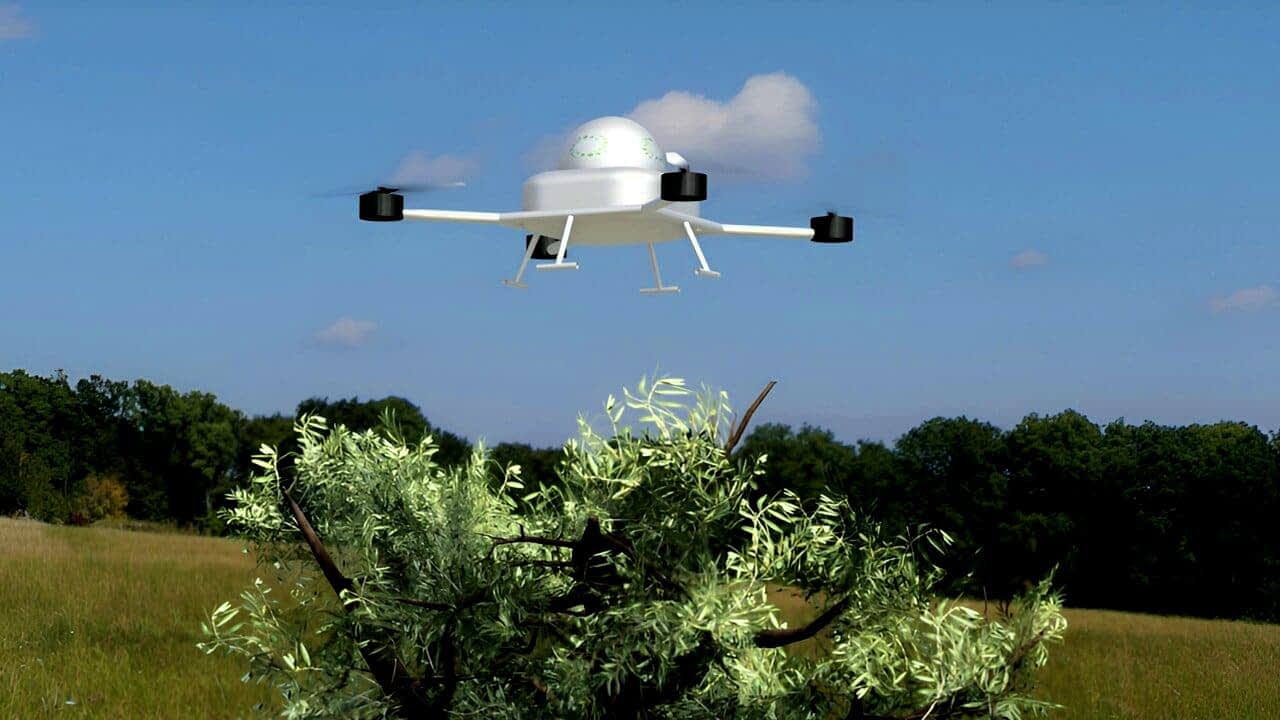
A team of students from the University of Roma Tre has developed OlivAir, an electric drone that uses wind generated by its propellers to selectively blow olives off branches, reducing environmental impact and increasing efficiency. The researchers estimate that OlivAir could increase producer profits by up to 30% and address the challenges faced by olive growers during harvesting, offering a faster and more efficient alternative to traditional methods.
There is yet to be an ideal way of harvesting olives. Manual harvesting is slow. Meanwhile, olive growers agree that harvesting machines and various types of shakers damage the branches.
The scars and wounds left by these methods can cause olive cancer, especially if the harvest takes place during wet or humid weather.
The OlivAir drone harvested olives three times faster and reduced environmental effects by using electricity instead of polluting fuels and avoiding tire contact with the tree
However, three students from the University of Roma Tre – Diana Zagarella, Dario Maroccu and Giacomo Longaroni – have devised a solution to some of these olive harvesting headaches.
The team presented OlivAir at Prototypes for Humanity, a competition for graduate students held in Dubai.
See Also:Researchers Unveil the Latest Technologies to Help Harvest and Produce Olive OilOlivAir is an electric drone that could revolutionize harvesting by blowing olives off the branches using the wind generated by its propellers.
“Our concept came from watching olives fall off in severe gusts. [We thought], what if producers could control the wind,” said Zagarella, the project’s co-founder and chief executive.
OlivAir hovers above the grove and creates the necessary wind conditions to blow olives off selectively as they reach the ideal point of ripeness.
Zagarella said that olive growers currently rely on tractors to complete mechanical harvests, which emit carbon dioxide, can potentially damage olive trees with their tires and are prone to flip over on steep slopes.
“The shaking process is extremely slow and polluting, and in modern times, it is very difficult to find seasonal workers,” Zagarella said.
“The OlivAir drone harvested olives three times faster and reduced environmental effects by using electricity instead of polluting fuels and avoiding tire contact with the tree,” she added.
The researchers added that harvesting with OlivAir resulted in 20 percent less olive wastage and estimated the technology could increase producer profits by up to 30 percent.
“According to interviews, the olive growers showed not only interest toward our drone, but also a genuine need,” Zagarella concluded. “With OlivAir drone, the harvest will become fast, efficient and possible everywhere.”



